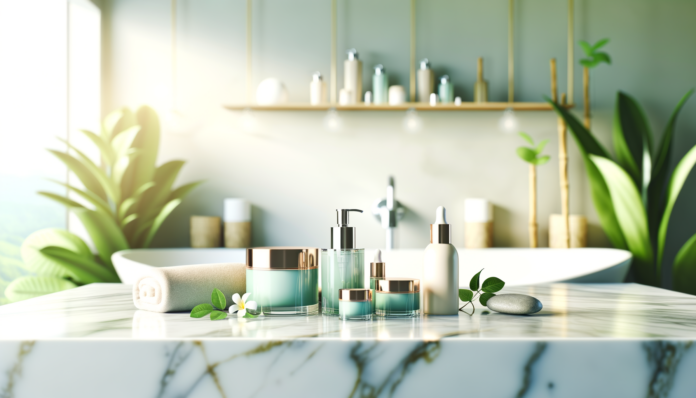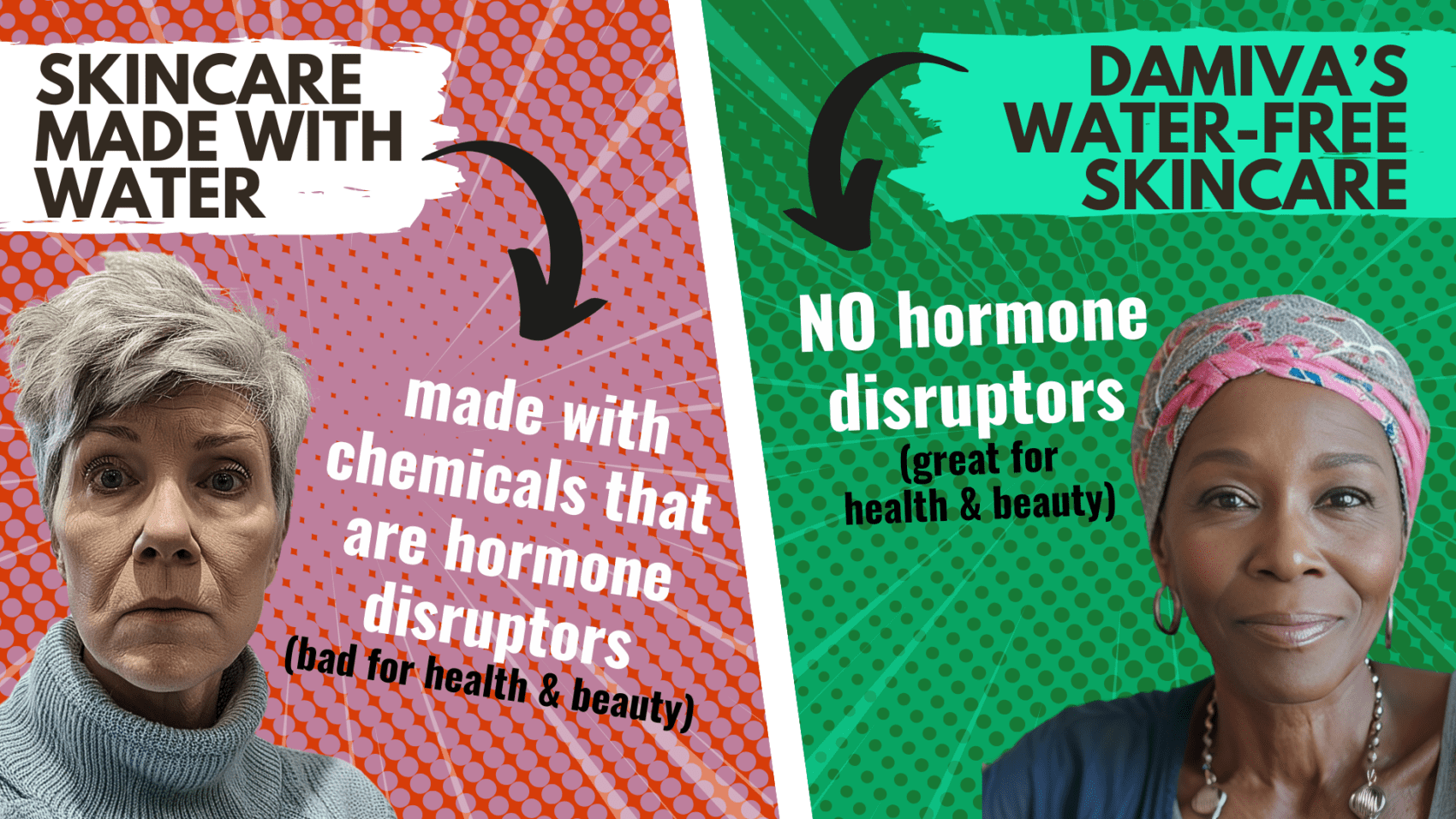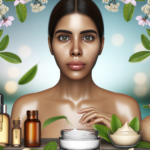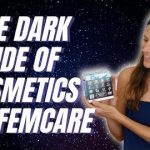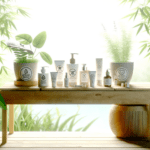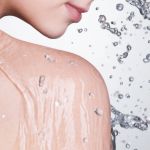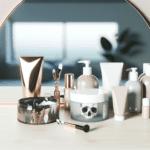Introduction
Understanding Menopausal Skin
Menopause is a significant phase in a woman’s life, marked by a series of hormonal changes that can have profound effects on the skin. As estrogen levels decline, the skin undergoes several transformations. These changes include decreased collagen production, reduced skin elasticity, increased dryness, and a higher susceptibility to irritation and sensitivity. The skin’s natural oil production diminishes, leading to dryness and the appearance of fine lines and wrinkles. Additionally, the skin may become thinner and more prone to bruising and tearing. These changes can make the skin appear older and less vibrant, posing a challenge for many women seeking to maintain a youthful appearance.
The Rise of Water-Free Skincare
In recent years, water-free skincare has gained popularity as a revolutionary approach to skin health. Traditional skincare products often contain a high percentage of water, which can dilute the active ingredients and necessitate the use of preservatives to prevent microbial growth. Water-free skincare products, on the other hand, are formulated without water, resulting in a higher concentration of active ingredients and a reduced need for preservatives. This trend has been driven by a growing awareness of the benefits of concentrated formulations and the desire for more effective and sustainable skincare solutions. Water-free products are particularly appealing for those with sensitive or compromised skin, as they minimize the risk of irritation from preservatives and other additives.
Purpose of the Article
The purpose of this article is to explore why water-free skincare could be the best choice for menopausal skin. We will delve into the science behind menopausal skin changes, examining the hormonal shifts and their impact on skin health. We will also define what water-free skincare is, highlighting its key characteristics and how it differs from traditional skincare products. Furthermore, we will discuss the specific benefits of water-free skincare for menopausal skin, including enhanced hydration, reduced risk of endocrine disruptors, and the concentration of active ingredients. By addressing common concerns and providing a step-by-step guide to transitioning to a water-free skincare routine, this article aims to empower women to make informed decisions about their skincare during menopause.
The Science Behind Menopausal Skin Changes
Hormonal Shifts and Their Impact
Menopause marks a significant transition in a woman’s life, characterized by a dramatic decline in estrogen and progesterone levels. These hormonal shifts have profound effects on the skin. Estrogen, in particular, plays a crucial role in maintaining skin health by promoting collagen production, enhancing skin thickness, and aiding in moisture retention. As estrogen levels drop, the skin loses its structural integrity, leading to a decrease in collagen by up to 30% within the first five years of menopause. This reduction in collagen results in thinner, less elastic skin, making it more prone to sagging and the formation of wrinkles.
Additionally, the decline in estrogen affects the skin’s ability to retain moisture, leading to increased dryness. Estrogen also influences the production of sebum, the skin’s natural oil, which helps to keep the skin hydrated. With lower estrogen levels, sebum production decreases, exacerbating dryness and making the skin more susceptible to irritation and sensitivity.
Common Skin Issues During Menopause
The hormonal changes during menopause can lead to a variety of skin issues, including:
- Dry Skin: Reduced estrogen levels impair the skin’s ability to retain moisture, leading to dryness and a weakened skin barrier. This can make the skin appear dull and exacerbate the appearance of fine lines and wrinkles.
- Wrinkles and Sagging: The loss of collagen and elastin fibers results in decreased skin elasticity, leading to the formation of wrinkles and sagging skin. Areas such as the face, neck, and hands are particularly affected.
- Age Spots and Sun Damage: Years of sun exposure combined with hormonal changes can lead to the development of age spots and sun damage. These spots are often more noticeable during menopause.
- Acne: Hormonal fluctuations can also lead to an increase in androgen levels, which can stimulate sebum production and lead to clogged pores and acne breakouts.
- Thinning Skin: The decrease in collagen and elastin makes the skin thinner and more fragile, increasing the risk of bruising and injury.
- Increased Facial Hair: A decline in estrogen relative to androgen levels can lead to the growth of unwanted facial hair.
The Role of Hydration in Skin Health
Hydration is essential for maintaining healthy skin, particularly during menopause when the skin’s natural ability to retain moisture is compromised. Proper hydration helps to maintain the skin’s elasticity, plumpness, and overall appearance. It also supports the skin’s barrier function, which protects against environmental stressors and prevents water loss.
Drinking adequate amounts of water is crucial, but topical hydration is equally important. Moisturizers containing ingredients like hyaluronic acid, glycerin, and ceramides can help to attract and retain moisture in the skin. Hyaluronic acid, for example, can hold up to 1,000 times its weight in water, making it an excellent ingredient for maintaining skin hydration.
In addition to using moisturizers, incorporating hydrating serums and avoiding harsh, drying skincare products can help to keep the skin hydrated. It’s also important to protect the skin from excessive sun exposure, as UV rays can further deplete the skin’s moisture levels and accelerate the aging process.
In summary, the hormonal changes during menopause significantly impact the skin, leading to dryness, wrinkles, and other common skin issues. Understanding these changes and the importance of hydration can help in managing menopausal skin and maintaining its health and appearance.
What is Water-Free Skincare?
Definition and Key Characteristics
Water-free skincare, also known as anhydrous skincare, refers to products that do not contain water as an ingredient. In traditional skincare formulations, water often makes up 70% or more of the product, listed as “aqua” on ingredient labels. In contrast, water-free skincare products rely on other ingredients such as oils, butters, and waxes to deliver their benefits. These formulations are typically richer and more concentrated, providing a higher dose of active ingredients per application.
Key characteristics of water-free skincare include:
- High Concentration of Active Ingredients: Without water, the remaining ingredients are more potent and effective.
- Enhanced Moisturization: These products often contain emollients that create a barrier on the skin, locking in moisture.
- Longer Shelf Life: The absence of water reduces the need for preservatives, which can extend the product’s shelf life.
- Sustainability: Smaller packaging and reduced water usage make these products more eco-friendly.
Types of Water-Free Skincare Products
Water-free skincare products come in various forms, each designed to address different skin concerns. Some common types include:
- Cleansing Oils: These are used to remove makeup and impurities without stripping the skin of its natural oils.
- Balms and Salves: Thick and rich, these are ideal for providing intense hydration and protection.
- Serums: Concentrated formulations that deliver active ingredients directly to the skin.
- Oils: Plant-based oils that nourish and moisturize the skin.
- Solid Moisturizers: Bars or sticks that melt upon contact with the skin, providing a mess-free application.
How Water-Free Skincare Differs from Traditional Skincare
Water-free skincare differs from traditional skincare in several significant ways:
- Ingredient Potency: Traditional skincare products often dilute active ingredients with water, reducing their effectiveness. Water-free products, on the other hand, offer a more concentrated dose of beneficial ingredients.
- Moisture Retention: Water-based products can evaporate quickly, sometimes leaving the skin feeling dry. Water-free formulations create a barrier that locks in moisture, providing longer-lasting hydration.
- Preservative Use: Water-based products require preservatives to prevent microbial growth, which can sometimes irritate sensitive skin. Water-free products generally need fewer preservatives, making them gentler on the skin.
- Sustainability: The production and packaging of water-free products often have a smaller environmental footprint, as they require less water and can be packaged in smaller containers.
In summary, water-free skincare offers a potent, sustainable, and effective alternative to traditional skincare products, making it particularly beneficial for menopausal skin that requires enhanced hydration and nourishment.
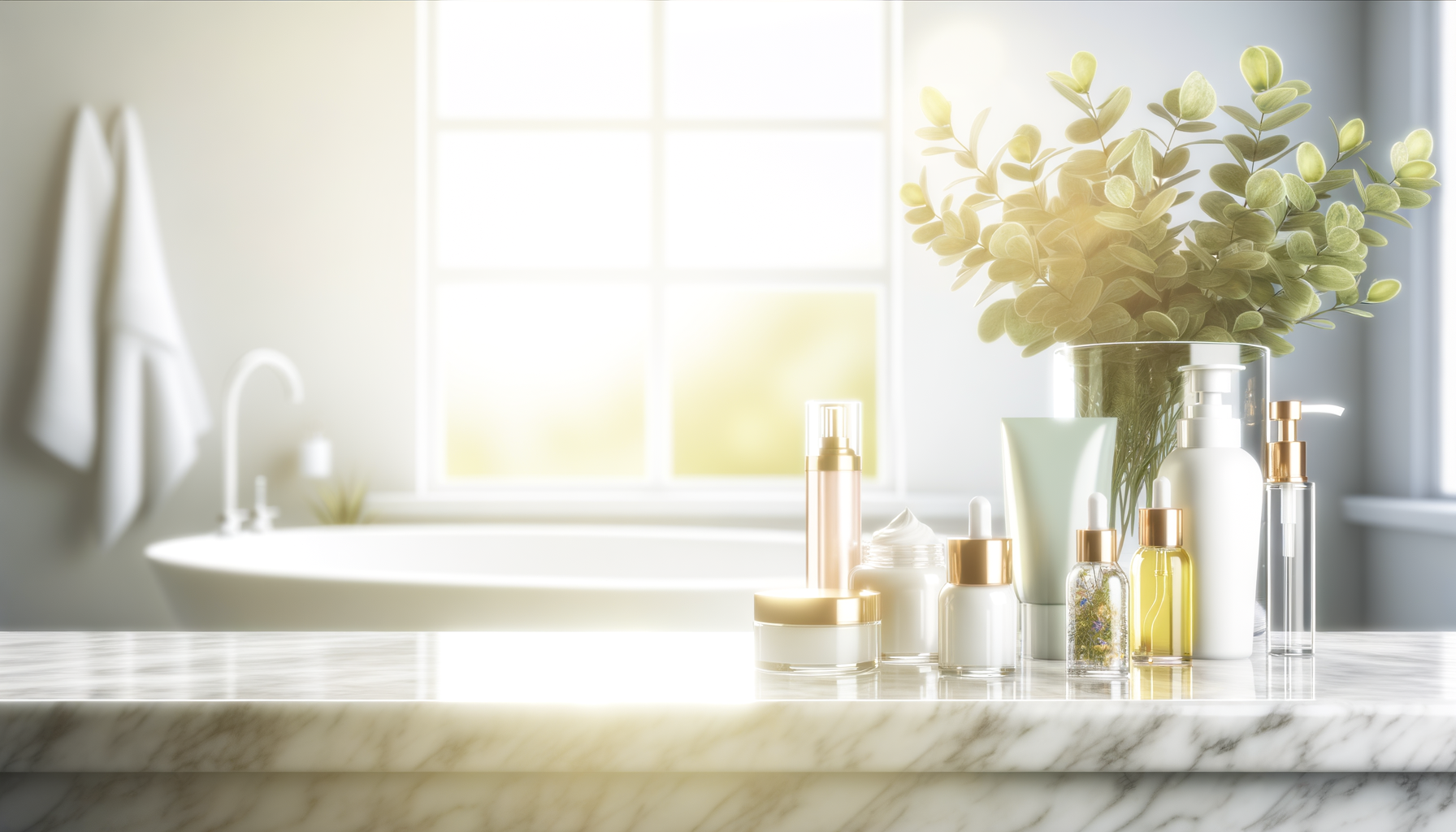
Popular Read: Endocrine Disruptors in Skincare: What You Need to Know
Benefits of Water-Free Skincare for Menopausal Skin
Enhanced Hydration and Moisture Retention
Menopausal skin often struggles with dryness due to decreased estrogen levels, which impair the skin’s ability to retain moisture. Water-free skincare products excel in providing enhanced hydration and moisture retention. Unlike traditional water-based products, which can contain up to 70% water, water-free formulations are rich in emollients such as botanical oils. These emollients create a barrier on the skin, locking in moisture and preventing trans-epidermal water loss (TEWL). This results in prolonged hydration, leaving the skin feeling soft, supple, and nourished throughout the day.
Reduced Risk of Endocrine Disruptors
Many conventional skincare products contain water, which necessitates the use of preservatives to prevent microbial growth. Some of these preservatives, such as parabens and phthalates, are known endocrine disruptors that can interfere with hormonal balance. For menopausal women, who are already experiencing significant hormonal changes, minimizing exposure to these chemicals is crucial. Water-free skincare products often require fewer preservatives, reducing the risk of endocrine disruption and making them a safer choice for sensitive, menopausal skin.
Concentration of Active Ingredients
Water-free skincare products are highly concentrated, meaning they contain a higher percentage of active ingredients compared to their water-based counterparts. This concentration allows for more effective delivery of beneficial compounds such as antioxidants, vitamins, and peptides. For menopausal skin, which may be dealing with issues like increased dryness, loss of elasticity, and fine lines, the concentrated active ingredients in water-free products can provide targeted treatment and more noticeable results. A little goes a long way, making these products both effective and economical.
Longer Shelf Life and Fewer Preservatives
The absence of water in skincare formulations significantly extends the shelf life of the products. Water is a breeding ground for bacteria and mold, necessitating the use of preservatives to ensure product safety. Water-free products, on the other hand, are less prone to microbial contamination, allowing them to remain stable and effective for longer periods. This not only reduces the need for preservatives but also means that the products can be stored and used over extended periods without losing their efficacy. For menopausal women looking for reliable and long-lasting skincare solutions, water-free products offer a practical and sustainable option.
Addressing Common Concerns
Is Water-Free Skincare Suitable for All Skin Types?
Water-free skincare products are generally suitable for a wide range of skin types, including dry, oily, combination, and sensitive skin. However, it’s essential to consider individual skin needs and preferences. For menopausal skin, which often becomes dry and sensitive due to hormonal changes, water-free products can be particularly beneficial. These products are rich in emollients and oils that provide deep hydration and create a protective barrier, helping to lock in moisture and soothe irritation.
For those with oily or acne-prone skin, the idea of using oil-based products might seem counterintuitive. However, many water-free skincare products are formulated with non-comedogenic oils that do not clog pores. Ingredients like jojoba oil, squalane, and rosehip oil can balance oil production and provide hydration without causing breakouts.
It’s always advisable to patch-test new products to ensure they do not cause adverse reactions. Consulting with a dermatologist can also help tailor a skincare routine that best suits your specific skin type and concerns.
Potential Allergens and Sensitivities
While water-free skincare products are often formulated with fewer preservatives and synthetic ingredients, they can still contain potential allergens. Natural oils and botanical extracts, common in water-free formulations, can sometimes cause allergic reactions or sensitivities. For instance, essential oils like lavender, tea tree, and citrus oils, while beneficial for many, can be irritating to some individuals.
To minimize the risk of allergic reactions, look for products labeled as hypoallergenic and free from common irritants such as fragrances, dyes, and harsh chemicals. Performing a patch test before fully incorporating a new product into your routine is crucial. Apply a small amount of the product to a discreet area of your skin, such as the inside of your wrist or behind your ear, and wait 24-48 hours to see if any irritation occurs.
If you have known allergies or sensitive skin, it may be beneficial to consult with a dermatologist who can recommend specific water-free products that are safe for your skin type.
Cost Considerations
One of the common concerns about water-free skincare is the cost. These products can sometimes be more expensive than their water-based counterparts. The higher price is often due to the concentration of active ingredients and the use of high-quality, natural oils and extracts. While the initial investment may be higher, water-free products are typically more concentrated, meaning you need to use less product per application, which can extend the product’s lifespan and provide better value over time.
Additionally, the benefits of water-free skincare, such as enhanced hydration, reduced need for preservatives, and a lower risk of irritation, can justify the cost for many users, especially those dealing with the specific challenges of menopausal skin. Investing in high-quality skincare can lead to better skin health and potentially reduce the need for additional treatments or products to address skin issues.
In conclusion, while water-free skincare products may come with a higher price tag, their concentrated formulas and long-term benefits can make them a worthwhile investment for those seeking effective solutions for menopausal skin concerns.
Do you know the 3 main ways how your body is exposed to harmful chemicals, which affect your hormones, your thyroid, health and beauty?
If not, it may be time to learn about them. It takes about 1-2 minutes.
We have a few suggestions how to avoid these silent health and immune system killers in our new guide.
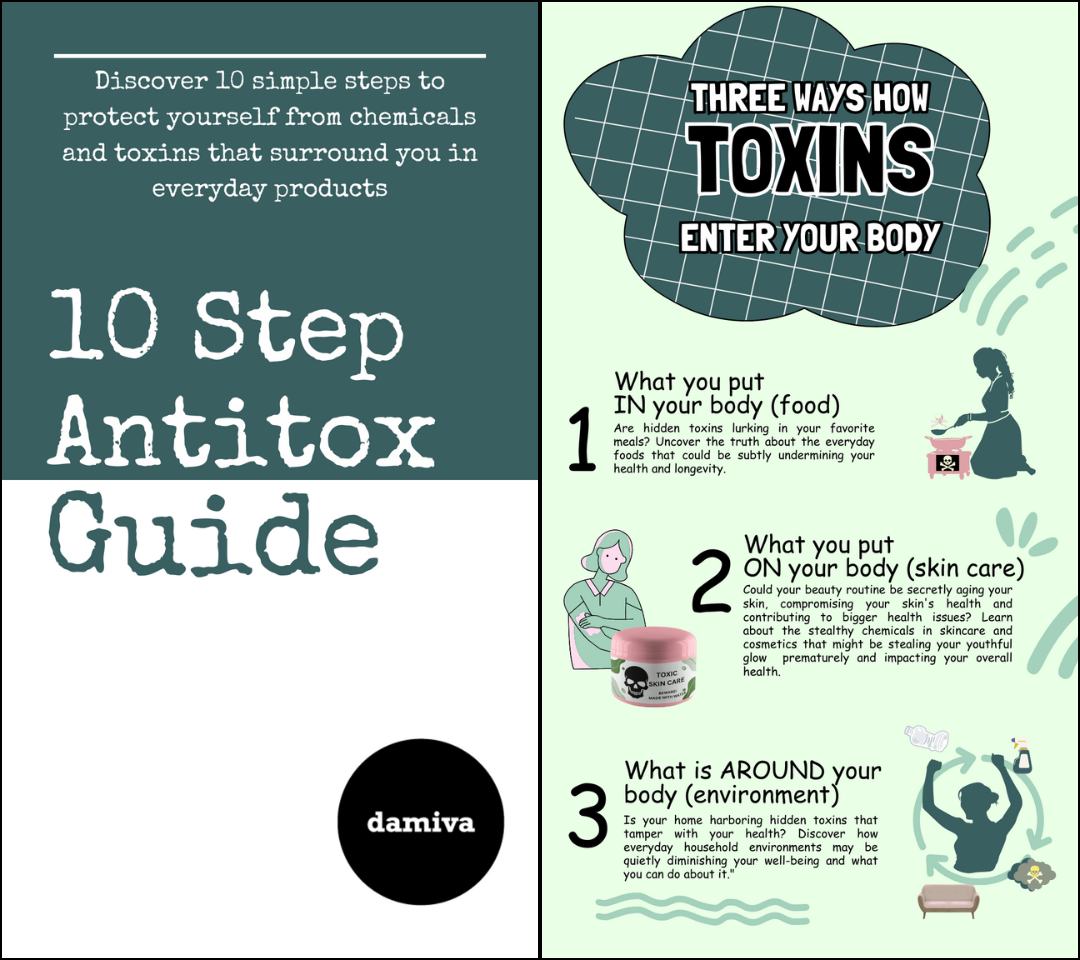
How to Transition to a Water-Free Skincare Routine
Evaluating Your Current Skincare Products
Before diving into a water-free skincare routine, it’s essential to evaluate your current skincare products. Start by examining the ingredient lists of your existing products. Look for water (often listed as “aqua”) as the first ingredient, which indicates that water is the primary component. These products are typically less concentrated in active ingredients and may not provide the intense hydration menopausal skin requires.
Next, assess the effectiveness of your current routine. Are you experiencing dryness, irritation, or lack of results? If so, it might be time to consider switching to water-free alternatives that offer more potent formulations and better moisture retention.
Step-by-Step Guide to Transitioning
Transitioning to a water-free skincare routine can be straightforward if you follow these steps:
1. **Gradual Introduction**: Start by incorporating one water-free product at a time. This allows your skin to adjust and helps you identify any potential sensitivities.
2. **Replace Your Cleanser**: Opt for an oil-based or balm cleanser. These types of cleansers effectively remove impurities without stripping your skin of its natural oils.
3. **Switch to Water-Free Serums and Moisturizers**: Look for serums and moisturizers that are formulated without water. These products often contain higher concentrations of active ingredients like hyaluronic acid, ceramides, and botanical oils, which are beneficial for menopausal skin.
4. **Incorporate a Hydrating Mist**: Use a hydrating mist that contains ingredients like glycerin or aloe vera to provide an extra layer of moisture throughout the day.
5. **Monitor Your Skin**: Pay close attention to how your skin responds to the new products. If you notice any irritation or adverse reactions, discontinue use and consult a dermatologist.
Tips for Maximizing Benefits
To get the most out of your water-free skincare routine, consider the following tips:
– **Layering**: Apply products in the correct order to maximize absorption. Start with the lightest consistency (serums) and work your way up to heavier products (moisturizers and oils).
– **Patch Testing**: Always perform a patch test when introducing new products to avoid potential allergic reactions or sensitivities.
– **Hydration from Within**: While water-free skincare products provide external hydration, don’t forget to stay hydrated internally by drinking plenty of water. This helps maintain overall skin health.
– **Use a Humidifier**: Especially in dry climates or during winter months, using a humidifier can help maintain moisture levels in your skin.
– **Consistent Routine**: Consistency is key. Stick to your new routine for at least a few weeks to allow your skin to adjust and show improvements.
By carefully evaluating your current products, following a structured transition plan, and implementing these tips, you can successfully switch to a water-free skincare routine that caters to the unique needs of menopausal skin.
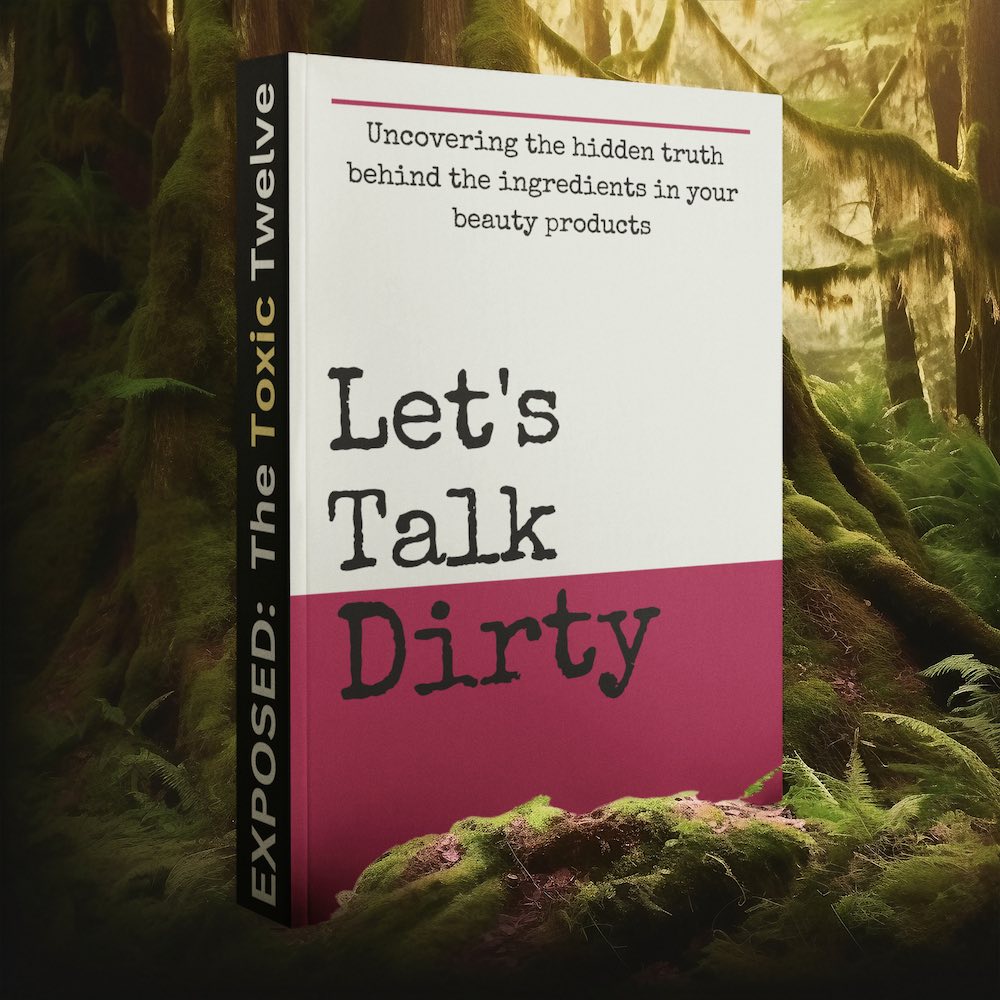
Feeling You Have a Right to Safe Beauty & Fem Care?
If so, it may be time for a change. It starts with knowledge. We have a few suggestions in our new guides.
Conclusion
Recap of Key Points
As we have explored throughout this article, menopausal skin undergoes significant changes due to hormonal shifts, primarily the decline in estrogen levels. These changes can lead to common skin issues such as dryness, thinning, increased sensitivity, and the appearance of wrinkles. Traditional skincare products often contain water as a primary ingredient, which can sometimes exacerbate these issues by not providing sufficient hydration or by introducing potential irritants. Water-free skincare products, on the other hand, offer a concentrated form of active ingredients, enhanced hydration, and reduced risk of endocrine disruptors, making them particularly beneficial for menopausal skin.
Encouragement to Explore Water-Free Skincare
Given the unique challenges that menopausal skin presents, it is worth considering the benefits of water-free skincare products. These products are designed to deliver potent active ingredients directly to the skin without the dilution that water-based products often entail. By incorporating water-free skincare into your routine, you can potentially see improvements in skin hydration, elasticity, and overall health. Moreover, the reduced need for preservatives in these formulations can minimize the risk of skin sensitivities and allergic reactions, making them a safer choice for those with delicate menopausal skin.
Final Thoughts on Menopausal Skin Care
Menopause is a natural phase of life that brings about various changes, including those affecting the skin. While these changes can be challenging, they also present an opportunity to reassess and refine your skincare routine. Embracing water-free skincare products can be a proactive step towards maintaining healthy, radiant skin during and after menopause. Remember, the key to effective skincare lies in understanding your skin’s needs and choosing products that address those needs comprehensively. By doing so, you can navigate the changes of menopause with confidence and grace, ensuring that your skin remains vibrant and well-nourished.

